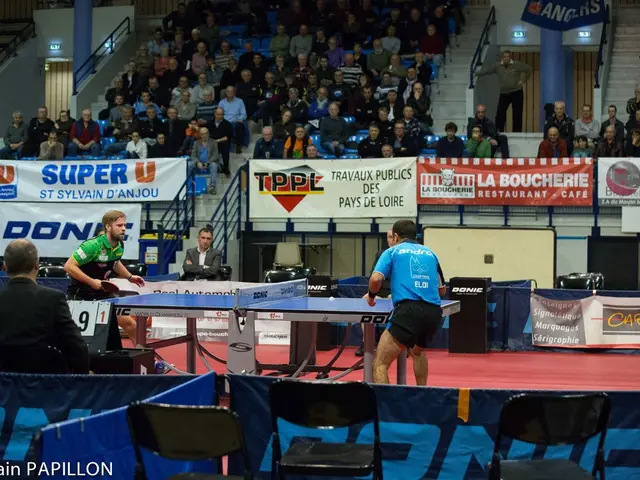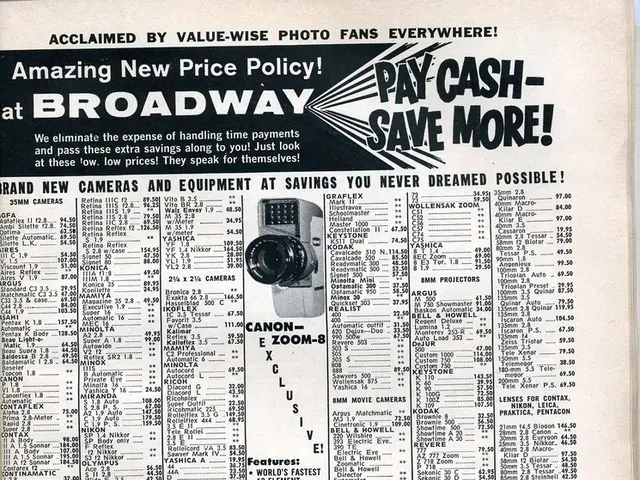Thousands of hotels lodging complaints against Booking.com - Over 10,000 hotel establishments have filed lawsuits against Booking.com.
More than 10,000 European hotels have joined forces in a class-action lawsuit against Booking.com, challenging the online travel giant's long-standing use of "best price" or "parity clauses." These clauses prevented hotels from offering their rooms at lower prices on their own websites or competing platforms than those listed on Booking.com.
The legal action stems from a ruling by the European Court of Justice (ECJ) in the fall of 2024, which deemed these clauses illegal under EU antitrust laws and harmful to competition. Following this ruling and the enforcement of the EU Digital Markets Act (DMA) in 2024, Booking.com discontinued the use of these parity clauses within the European Economic Area.
Background
The "best price" or "parity clause" compelled hotels to not advertise or offer their rooms at prices lower on their own websites or competing platforms than those on Booking.com. The ECJ ruled that such clauses restrict competition and violate antitrust law, asserting that platforms like Booking.com can operate without imposing these clauses.
The lawsuit seeks compensation for losses hotels claim to have suffered due to these clauses over two decades, from 2004 to 2024. The case is being heard in a court in the Netherlands—Booking.com’s headquarters are in Amsterdam.
Implications
The hotels argue that Booking.com’s pricing policies unfairly restricted their ability to compete and maintain direct bookings, leading to excessive commission payments (typically 15-25%) and forced price fixing. Preliminary estimates by the plaintiffs suggest that affected hotels could be entitled to refunds amounting to around 30% of the commissions paid to Booking.com during the 2004-2024 period.
The lawsuit is supported by over 30 national hotel associations across Europe, including Germany’s IHA and Italy’s Federalberghi, coordinated by the European Hotel Alliance HOTREC, representing a unified industry front. The case highlights growing regulatory scrutiny over unfair digital market practices and could influence how online travel platforms structure their contracts and pricing policies in the future.
Ongoing Support and Developments
The deadline for European hotel owners to join the class-action lawsuit has been extended to August 29, 2025, reflecting significant interest and participation across countries such as Estonia and others. Since the final court decision may take several years, further clarity and repercussions are expected in the autumn, as legal proceedings continue and the market adjusts to new regulations.
In summary, this extensive class action reflects a significant challenge to Booking.com’s previous business model and underscores the evolving landscape of digital market regulation in Europe aimed at enhancing competition and fairness for hotels and consumers alike. The changes made by Booking.com due to the ECJ ruling and the EU Digital Markets Act (DMA) 2024 have little impact on travelers. The lawsuit aims to secure compensation for two decades of restrictions, and the share of direct bookings in Germany has decreased by around eight percent between 2013 and 2023.
- The European Court of Justice (ECJ) ruling in 2024 not only deemed "best price" or "parity clauses" illegal under EU antitrust laws but also opened the door for a shift in lifestyle, as hotels are no longer compelled to adhere to such restrictive policies.
- The home-and-garden sector might witness a revitalized self-sustaining mindset among hotel operators, now that they can offer competitive prices on their own websites and reducing excessive commission payments to online travel entities like Booking.com.
- As the travel industry evolves, raising awareness around the complexities of casino-and-gambling, casino-games, and other digital market practices will become increasingly crucial for consumers and businesses alike, in light of the growing regulatory scrutiny and the recent lawsuit against Booking.com.








